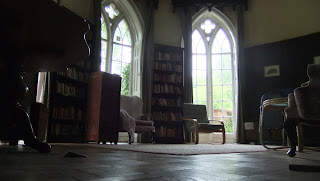Mind Your Metaphors
Metaphor and Neuroscience lecture notes
By Peter Wallis
An Introduction to three important ideas:
- Metaphors are Everywhere.
- Metaphors can be Dangerous
- Metaphors can be wonderful, beautiful things.
- Metaphors can be useful and helpful.
Preliminaries: What is a metaphor? A Metaphor is “like a simile.” It speaks of one object in terms of another. Dictionaries tend to define metaphors as non-literal comparisons, or use of a word, sense, or object in a non-literal sense. One problem - as we shall see, the idea of the literal is problematized by metaphor itself.
- Metaphors are Everywhere
They are in our every-day language, in several interestingly pervasive ways. Time is often (and in many cultures) thought of in terms of space – the future is forward. The past is backward. “Down the road” or “Back then.”
“Love relationships are journeys”. - The long and winding road of the Beatles song is repeated with surprising regularity - “Going through this together.” “How far we've come.” “We went our separate ways.” “Been a bumpy road.” “This relationship isn't going anywhere.”
“More is Up.” - “Prices went through the roof.” “My income rose.” “The number of books printed is going up.”
Not only this, but metaphors invade our bodies as well as our words. Scientists, asking experimental subjects to lie in front of a classroom, then offering them a choice of moist towelettes/hand wipes or candy, found those asked to lie chose the wipes much more often than those asked to tell the truth. (Metaphor:Truth is clean, lies are dirty.) People speaking of the future lean forward, when speaking of the past lean back. Experimenters at Yale university put a pretty girl in an elevator, with a cup of coffee, which she would ask unknowing experiment subjects to hold. When later asked what they thought of her, those who held a cup of iced coffee thought she was “stand-off-ish,” “rude” and “distant.” Those asked to hold a warm cup of coffee thought of her as “friendly” “outgoing” and “sensitive.”And of course, in some sense, most words are metaphors. Silver is called silver because of the slivery way light reflects off of it. Cobalt is called Cobalt for the German word for goblin. Literal literally means “of or belonging to letters or writing” yet letters and writing all speak of things – which are not letters or writing – in terms of ink and phonetics.
Many of these metaphors, and more, are explored at some length in the book “Metaphors We Live By” by George Lakoff and Mark Johnson.
2. Metaphors can be Dangerous.
More briefly, politicians and economists often use metaphors, when they speak of “the invisible hand of the market.” or “a rising tide lifts all boats.” David Cameron speaks of “Rebooting the economy.” (which makes the computer literate of us worry, as to reboot a computer, you need to bring it to a full stop...) and George W Bush spoke of “spearheading the peace process.” Of course, these metaphors are in themselves not bad, but when they are used to excuse or hide sloppy thinking, when they are not analyzed, and when real and specific goals and actions are put aside for turns of phrase that sound well but mean very little, they are dangerous.
3. Metaphors can be Beautiful.
You need only look in a good book of poetry to find this. Metaphors are word-pictures, and some of my favorites call a startling amount of attention to themselves, doing odd visual things, be it William Blake/Blade Runner's “Firy the angels fell, Deep thunder rolled about their shores.” which is a visual change of scale if ever I've imagined one, or Milton's “Hail, Holy light!” Written by an author who is blind, and makes sure the reader is aware of the author's blindness. In this way, poetic metaphor often asks to be analyzed and searched more deeply, as opposed to bad political metaphor, which asks only to be repeated.
4. Metaphors can be useful.
Not just for poets – in every-day life. World-Champion memorizers use metaphors to perform incredible feats of memory, and these champions teach others to use these same techniques to improve their day to day memories, be it memorizing shopping lists by making metaphors with the things in one's house, or transforming ideas into images and then making those images interact in striking ways. I have been practicing that, memorizing the periodic table, using the images suggested by the elements' etymologies, which is why I knew silver-silver and Cobalt-goblin.


